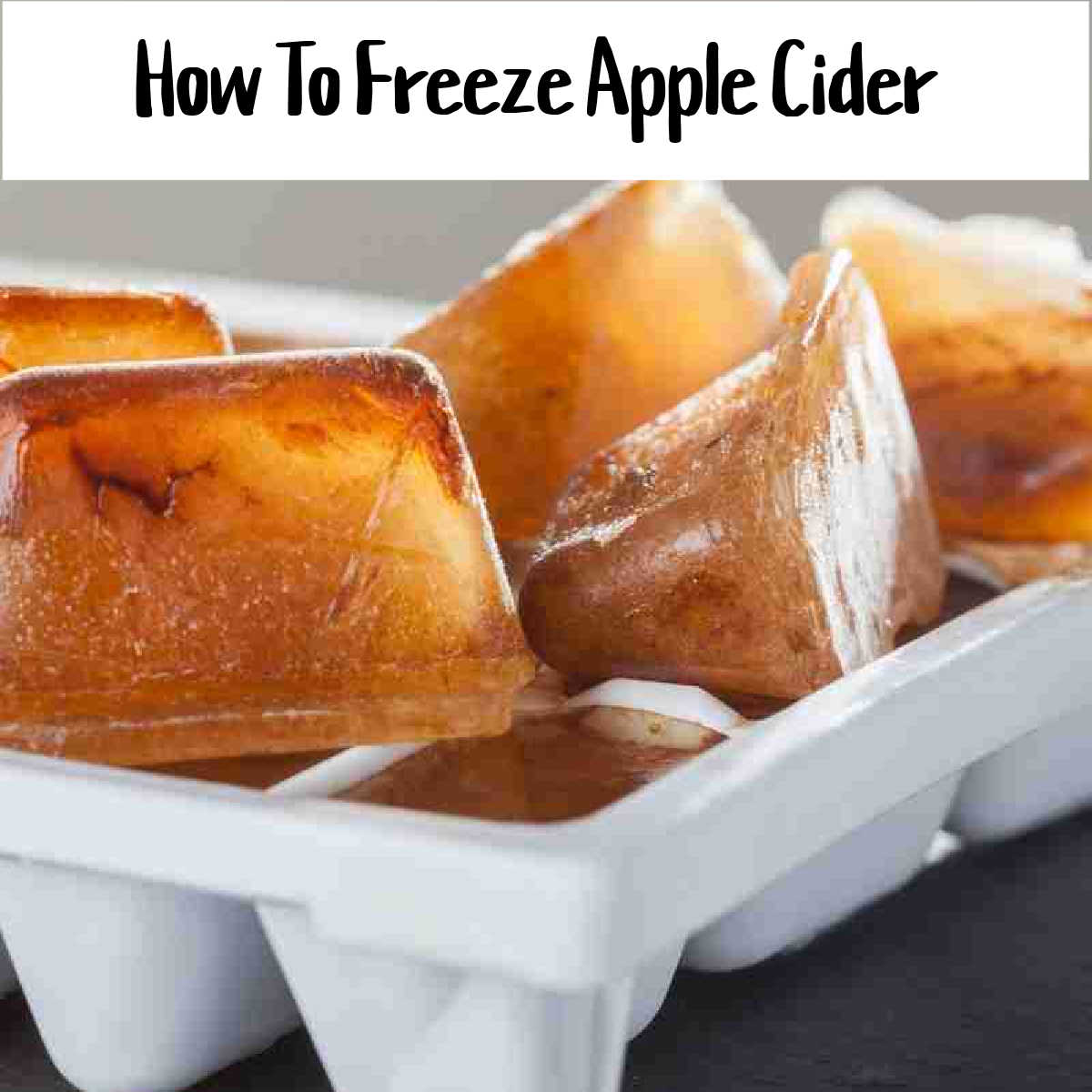Have you ever wondered about the versatility of vinegar? It’s a staple in kitchens worldwide, known for its ability to enhance flavors and preserve foods.
But have you ever asked yourself, “Can you freeze vinegar? ” You might be surprised by the answer! Understanding the properties of vinegar and how it reacts to freezing can open up a whole new world of culinary possibilities. Whether you’re looking to store it for long periods or curious about its behavior in your freezer, this article is packed with insights that will satisfy your curiosity.
Dive in to discover whether your vinegar bottle can take the plunge into icy temperatures without losing its zest!
Table of Contents
The Nature Of Vinegar
Vinegar is made from acetic acidand water. Acetic acid gives vinegar its sour taste. This acid is what makes vinegar special. It is also a natural preservative. Vinegar has a low pH, usually around 2 to 3. This means vinegar is acidic. Because of this, it can help stop bacteria from growing.
Many types of vinegar exist. Each has its own flavor and use. Apple cider vinegaris made from apples. It is often used in salads. White vinegaris very strong. It is good for cleaning. Balsamic vinegarcomes from Italy. It is sweet and rich. Each type of vinegar has its own special traits. These traits make them unique.

Credit: savorandsavvy.com
Freezing Vinegar: Myth Or Reality?
Vinegar has a unique property. It contains acetic acid. This acid lowers the freezing point. Most vinegars freeze at a lower temperature than water. The freezing point is around -2°C to -3°C. But, regular home freezers are set at -18°C. So, vinegar will freeze in a home freezer.
Some people think vinegar cannot freeze. This is not true. Vinegar can freeze, but it needs very cold temperatures. Others believe freezing changes vinegar’s taste. Not true. The taste remains the same after thawing. Another myth is that vinegar loses its strength when frozen. Vinegar’s strength stays the same after freezing.
Effects Of Freezing On Vinegar
Freezing vinegar can alter its flavor. Some flavors become weaker. Others might get stronger. Vinegar’s unique taste may change. Not always a good change. Flavors mix differently after thawing. It might lose its original taste.
Vinegar’s aciditycan change with freezing. Sometimes it becomes less acidic. Other times, it stays the same. Freezing might affect pH levels. This can change how vinegar works in recipes. Acidity is key for vinegar’s uses.
Freezing affects vinegar’s texture. It can become cloudyor grainy. Sometimes it separates. Thawing doesn’t always fix it. Texture changes can impact cooking. Smooth vinegar is often preferred.

Credit: www.tiktok.com
Alternative Storage Methods
Vinegar, though freezeable, doesn’t need freezing for preservation. Its acidic nature keeps it fresh for a long time. Freezing might change its texture but not its safety or flavor.
Refrigeration Benefits
Keeping vinegar in the fridge can help it stay fresh. The cold slows down any unwanted changes. This means the vinegar will taste the same longer. Refrigeration can also prevent cloudiness. This keeps the vinegar looking nice. Some people find this important. Always use a clean bottle. This stops germs from growing.
Room Temperature Storage
Vinegar is safe at room temperature. Vinegar’s natural acidity keeps it from spoiling. It can last for a long time. Most people store it in a cupboard. A dark place is best. Light can change its color. Make sure the bottle is closed tight. This keeps out dust and bugs. Vinegar stays good for years this way.
Best Practices For Vinegar Storage
Using the right container keeps vinegar fresh. Choose a glass or plastic bottle. Glass is best. It doesn’t react with vinegar. Plastic is okay too. Make sure it’s food-safe. Avoid metal containers. Metal can rust or react with vinegar. Always keep the container sealed tight. This stops air from getting in. Air can change vinegar’s taste.
Store vinegar in a cool, dark place. Light and heat affect its flavor. A pantry or cupboard works well. Never store vinegar near a stove. Heat from cooking can be bad for it. Room temperature is best for vinegar. Avoid freezing it. Freezing can change its acidity. This makes it less tasty. Always keep the bottle closed tight. This keeps out unwanted smells.
Culinary Uses And Storage Tips
Vinegar adds a tangy taste to many dishes. It can enhance flavors in salads and sauces. Use it to make pickles or marinades. A splash in soups makes them bright. Vinegar is also perfect for tenderizing meat. It breaks down tough fibers. Baking with vinegar makes cakes fluffy. Always use it in small amounts. Too much makes food sour.
Store vinegar in a cool, dark place. A pantry or cupboard works well. Keep the bottle tightly closed. This prevents loss of flavor. Vinegar can last for a long time. It does not spoil easily. Do not freeze vinegar. Freezing can change its taste. The acids in vinegar may separate. This affects the quality. Always use clean utensils when pouring. This keeps the vinegar fresh.

Credit: www.wholefoodbellies.com
Conclusion
Freezing vinegar presents unique challenges. Its high acidity affects freezing processes. Vinegar may separate or lose its taste when frozen. Not all vinegars behave the same way. Some will freeze better than others. Experiment with small amounts first. This avoids waste and ensures success.
Most cooking uses don’t need frozen vinegar. Store it in a cool, dark place instead. This preserves its quality and flavor. Freezing is not always necessary. So, think about your needs and experiment wisely.

I am Brianna, a self-published author with a passion for sharing my knowledge and expertise on various topics with people looking to find the perfect items for their needs. I love ensuring that the right informative content is available to people looking for the right information. I am an avid horseback rider and reader when I am not writing.
Follow me on Facebook, TikTok, or Personal Blog.